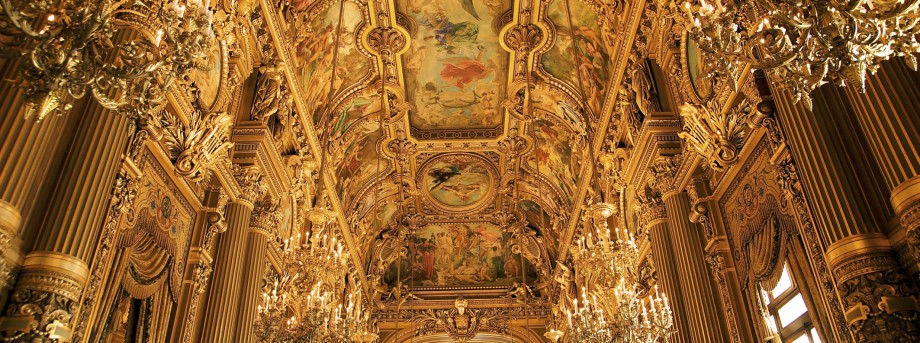The University of Nottingham
 Exchange online
Exchange online
Research Exchange
Vive la revolution! How grand opera influenced French political upheaval

The sights, sounds and spectacle of French grand opera may have helped to keep the revolutionary spirit alive in the hearts and minds of Parisian audiences, according to research by a University of Nottingham academic.
Dr Sarah Hibberd is exploring how cataclysmic operatic tableaux evoking the complex ‘sublime’ emotions of the turbulent, exciting and violent days of the French Revolution of 1789 played a role in shaping the political climate surrounding the July Revolution in 1830 and the ‘February Revolution’ of 1848.
Her work will also consider how the revolutionary echoes of French opera offered audiences of varied political views a shared experience by which they could heal the trauma — or alternatively keep alive the hope — associated with events including the Storming of the Bastille in 1789, the brutal Reign of Terror, in which around 40,000 members of the French privileged classes lost their lives, and the eventual execution of the deposed King Louis XVI in 1793.
‘Frightening and exciting’
Dr Hibberd, based in the University’s Department of Music, said: “In Paris in the 1790s when the revolution exploded it was a terrible and wonderful thing at the same time — it was frightening and exciting and no one knew quite what was going to happen next. There were many descriptions at the time associating it with the eruption of a volcano or other kinds of natural cataclysmic events, and the word ‘sublime’ was used a lot in that particular context.
“It’s a word which means different things, but no one has really explored the legacy of the revolutionary ‘sublime’ in France. My research will centre on a series of operas that have these extraordinary cataclysmic conclusions — perhaps an erupting volcano, an avalanche or an exploding building — events in which everybody on stage is overwhelmed by both the excitement and the destruction.”
In an age before high-definition television and surround sound, these grand operas offered an overwhelming multi-sensory experience — in addition to the visual and musical impact, the audience were bombarded with deafening sound effects and the smoke and pungent aroma produced by the chemicals used to produce them.
As a result, part of the project will also explore the cutting-edge scientific advances of the age associated with the staging of grand opera — opera pioneered the early use of electricity in the theatre to create special effects and showcased new instrument technology, including the saxophone in the 1840s.
Collective memories
Dr Hibberd added: “The revolution is never very far away from the surface in 19th-century France but it erupts in different ways. The operas are very rarely about revolution tout court, because of government censorship, but they often offer metaphors for revolutionary experience.
“There were frequent descriptions in the press at the time from people saying they recognised the experience, that it was just what they had lived through themselves. It was the merging of the fictional stage with their personal and collective memories.”
Funded with £130,000 from the Arts and Humanities Research Council, the project will centre on early French operas including the 1797 two-act opéra-comique Médée by Luigi Cherubini — a composer who was described in some quarters of the French press as a ‘musical terrorist’ for his ‘noisy’ and harmonically audacious orchestral music.
Another opera, La Muette de Portici (The Mute Girl of Portici), by French composer Daniel Auber, was first performed at the Paris Opéra in 1828. Although it featured the suppression of a revolution, it brought the events to life with vivid music, dance and stage effects, and the duet ‘Amour sacré de la patrie’ at a performance in Brussels in 1830 was the chosen signal to launch the Belgian uprising against the Dutch.
The project will culminate in a new book on the subject of the revolutionary sublime in French opera, and Dr Hibberd will work with a PhD student and a Research Fellow to organise a number of academic workshops and symposia.
A range of public talks, podcasts, broadcasts and programme notes are planned to communicate the research findings to modern audiences via organisations such as the Royal Opera House, Opera North and the BBC.
Leave a Reply
Other

Top prize for quantum physicist
A University of Nottingham physicist has won a prestigious medal from the Institute of Physics for […]

Zero carbon HOUSE designed and built by students comes home
Design and construct a low cost, zero carbon, family starter home, transport it to Spain, build […]